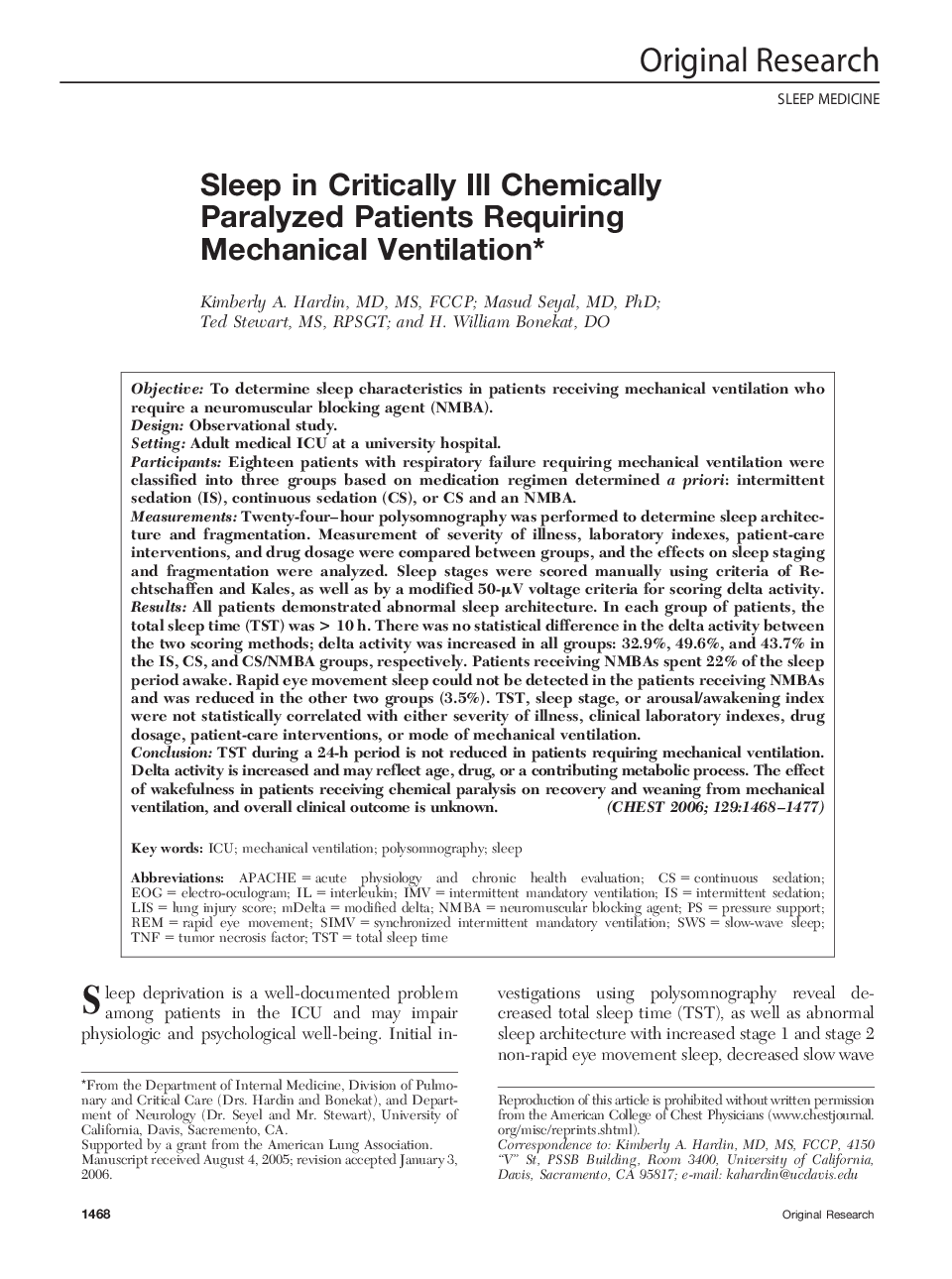| کد مقاله | کد نشریه | سال انتشار | مقاله انگلیسی | نسخه تمام متن |
|---|---|---|---|---|
| 2905936 | 1173439 | 2006 | 10 صفحه PDF | دانلود رایگان |

ObjectiveTo determine sleep characteristics in patients receiving mechanical ventilation who require a neuromuscular blocking agent (NMBA).DesignObservational study.SettingAdult medical ICU at a university hospital.ParticipantsEighteen patients with respiratory failure requiring mechanical ventilation were classified into three groups based on medication regimen determined a priori: intermittent sedation (IS), continuous sedation (CS), or CS and an NMBA.MeasurementsTwenty-four–hour polysomnography was performed to determine sleep architecture and fragmentation. Measurement of severity of illness, laboratory indexes, patient-care interventions, and drug dosage were compared between groups, and the effects on sleep staging and fragmentation were analyzed. Sleep stages were scored manually using criteria of Rechtschaffen and Kales, as well as by a modified 50-μV voltage criteria for scoring delta activity.ResultsAll patients demonstrated abnormal sleep architecture. In each group of patients, the total sleep time (TST) was > 10 h. There was no statistical difference in the delta activity between the two scoring methods; delta activity was increased in all groups: 32.9%, 49.6%, and 43.7% in the IS, CS, and CS/NMBA groups, respectively. Patients receiving NMBAs spent 22% of the sleep period awake. Rapid eye movement sleep could not be detected in the patients receiving NMBAs and was reduced in the other two groups (3.5%). TST, sleep stage, or arousal/awakening index were not statistically correlated with either severity of illness, clinical laboratory indexes, drug dosage, patient-care interventions, or mode of mechanical ventilation.ConclusionTST during a 24-h period is not reduced in patients requiring mechanical ventilation. Delta activity is increased and may reflect age, drug, or a contributing metabolic process. The effect of wakefulness in patients receiving chemical paralysis on recovery and weaning from mechanical ventilation, and overall clinical outcome is unknown.
Journal: Chest - Volume 129, Issue 6, June 2006, Pages 1468–1477